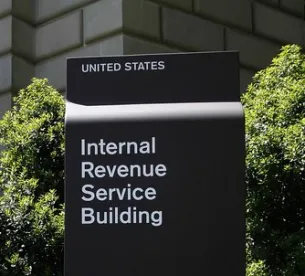In CIC Services, LLC v. Internal Revenue Service, a unanimous US Supreme Court allowed CIC, a tax advisor, to proceed with a pre-enforcement challenge to the Internal Revenue Service’s (IRS) “reportable transaction” regime. CIC alleged that the IRS violated the Administrative Procedure Act (APA) when it issued Notice 2016-66 (Notice), deeming certain micro-captive insurance transactions as “reportable transactions” and sought an order enjoining enforcement of the Notice. The IRS sought to avoid judicial review by hiding behind the Anti-Injunction Act’s (AIA) bar on suits brought “for the purpose of restraining the assessment or collection of any tax.” Disagreeing with the trial and appellate courts, the Supreme Court allowed CIC’s suit to proceed, finding that CIC was challenging a regulatory mandate separate from any tax. As the Court explained, “The tax appears on the scene – as criminal penalties do too – only to sanction that mandate’s violation.” By choosing to address their concerns about micro-captive transactions by imposing a non-tax reporting obligation, Congress and the IRS “took suits to enjoin their regulatory response outside the Anti-Injunction Act’s domain.”
On remand, the Court’s decision leaves open questions that the lower courts must now address while also providing meaningful clues about how the Court may approach future disputes over IRS enforcement strategies. Such questions include: (1) does the reportable transaction regime as the IRS currently administers it violate the APA (See: Mann Construction, Inc. v. United States, No. 1:20-cv-11307 (E.D. Mich. May 13, 2021) (holding that IRS Notice requiring disclosure of listed transactions was not subject to APA’s notice-and-comment requirement); (2) would the AIA bar a suit to enjoin enforcement of a reporting obligation brought by a taxpayer, as opposed to an advisor; (3) how onerous must the challenged requirement be; (4) how disconnected from the tax penalty must the challenged requirement be and (5) is the existence of criminal penalties sufficient and/or necessary to exempt a challenge from the AIA?
Practice Point:
APA challenges in tax cases have steadily increased since the Supreme Court’s rejection of tax exceptionalism 10 years ago in Mayo Foundation for Medical Education & Research v. United States, 562 U.S. 44 (2011). As tax law continues to get more complicated and the IRS issues additional guidance, we can expect this trend to continue. Understanding how to use the APA to challenge the overreaching of the IRS is an important tool for taxpayers and tax advisors alike. In the absence of a clear congressional mandate, any new enforcement policy issued by the IRS may be fair game for an APA challenge. The Supreme Court has opened the door to judicial review of unsanctioned IRS programs that place unfair burdens on taxpayers. And, this issue extends beyond the reportable transaction regime, including to the information reporting proposals recently announced by the Biden Administration.





 />i
/>i

